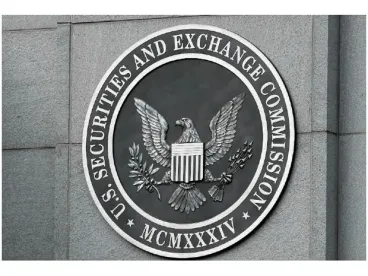Earlier this week, the Securities and Exchange Commission (SEC) proposed new rules requiring the disclosure of hedging policies for directors, officers, and other employees in annual proxy statements. These rules, which currently are subject to a 60-day comment period, were proposed pursuant to Section 955 of the Dodd-Frank Wall Street Reform and Consumer Protection Act. If adopted, the new rules would add a new paragraph (i) to Item 407 of Regulation S-K that would require a company to disclose whether it permits any employees (including officers) or directors, or any of their designees, to engage in hedging transactions designed to offset a decrease in the market value of the company’s equity securities.
Specifically, the proposed rules would cover any type of transaction that is designed to establish “downside price protection.” Disclosure would be required for (1) the use of financial instruments (including prepaid variable forward contracts, equity swaps, collars, and exchange funds) that offset a decrease in the market value of the company’s equity securities and (2) any other transaction with comparable economic consequences. The proposed rules would apply to equity securities that are registered under Section 12 of the Securities Exchange of 1934 and that are issued by the company, its parents, any subsidiary, or any subsidiary of any parent of the company. Disclosure would be required for all equity securities held, directly or indirectly, by employees or directors regardless of whether the securities were acquired as part of compensation or otherwise. The proposed rules would apply to all companies that are subject to the federal proxy rules, including smaller reporting companies and emerging growth companies.
In describing its hedging policies, a company would be required to disclose:
(1) the categories of persons who are permitted to engage in hedging transactions and the categories of persons who are prohibited from engaging in hedging transactions;
(2) the categories of hedging transactions that are permitted and the categories of hedging transactions that are prohibited (or include a statement explaining that all types of hedging transactions are permitted or prohibited); and
(3) sufficient detail to describe the score of any permitted hedging transactions.
Although existing proxy rules require disclosure of hedging policies when discussing the compensation of a company’s “named executive officers,” the new proposed hedging rules broadly cover all company stock and all employees and directors. Under the proposed rules, hedging policies are treated as a corporate governance item for shareholders to consider when voting in director elections. Companies are not required to implement a hedging policy under the rules. Additionally, the proposed rules do not (1) prohibit hedging transactions by directors or employees or (2) require disclosure of hedging transactions unless disclosure is already required under existing SEC rules (for example, a Form 4 filing pursuant to Section 16 of the Securities Exchange of 1934).
Considerations
Companies should consider whether updates to company policies and internal controls are necessary in light of the proposed hedging rules. Additionally, companies may wish to enhance hedging disclosures in this year’s proxy statement given the current focus on hedging policies. Companies should keep in mind that proxy advisory firms such as Institutional Shareholder Services (ISS) and Glass Lewis view hedging negatively. Current ISS policy provides that any amount of hedging by a director or officer is a “problematic practice” that warrants a recommendation to vote against appropriate directors. Moreover, lacking an anti-hedging policy will result in a “red flag” under the ISS QuickScore 3.0 system.



 />i
/>i

